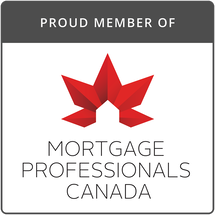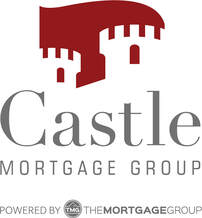What Is A Mortgage Broker?A Mortgage Broker is defined slightly differently depending on which Canadian province you are in.
In Manitoba, a Mortgage Broker (a.k.a. Mortgage Brokerage) is an organization that specializes in bringing lenders and borrowers together for the purposes of arranging a mortgage loan in order to acquire real estate. The individual that facilitates the process of arranging the mortgage is referred to as a Mortgage Specialist or Mortgage Professional. This person is licensed to do their job on behalf of their Mortgage Brokerage/Mortgage Broker. In other provinces, the individuals themselves are allowed to refer to themselves as Mortgage Brokers. They also must be licensed to arrange mortgages on behalf of their brokerage. |
What Does A Mortgage Broker Do?
A Mortgage Broker or Brokerage establishes and maintains relationships with various different Mortgage Lenders in order to provide a variety of options for the Mortgage Specialists to offer their clients.
Saving money on a mortgage can be tricky:
Because of these reasons, in order to find the perfect mortgage for each client, it's important for Mortgage Brokers to have a lot of different options for their Mortgage Specialists to choose from.
Castle Mortgage is one of the largest Mortgage Brokers in Winnipeg and because of this, we have relationships with dozens of different Lenders to be able to offer our clients the best deal on the right mortgage for their needs.
Saving money on a mortgage can be tricky:
- Every Canadian's financial situation is different.
- Every Lender has slightly different features, terms, and conditions within their mortgage products.
- Each Lender has certain "types" of clients that they prefer to work with
Because of these reasons, in order to find the perfect mortgage for each client, it's important for Mortgage Brokers to have a lot of different options for their Mortgage Specialists to choose from.
Castle Mortgage is one of the largest Mortgage Brokers in Winnipeg and because of this, we have relationships with dozens of different Lenders to be able to offer our clients the best deal on the right mortgage for their needs.
How Do Mortgage Brokers Get Paid?
In most cases, Lenders pay a commission to a Mortgage Broker once a mortgage loan has been funded with that Lender. This fee is a cost of doing business for the Lender and is not charged to the borrower in any way...no fee built into the mortgage or no inflated interest rates in order to cover the commission being paid to the Broker.
The commission is based on the mortgage amount.
The Mortgage Specialist that helped arrange the mortgage receives a portion of that commission.
Sometimes if creative financing solutions are necessary due to the type of property being purchased, or if the client's financial situation is unique, either an Alternative Lender or Private Lender may be required in order to secure financing.
If this is the case, most Alternative Lenders and Private Lenders do not pay a commission to the Mortgage Broker per se. Most of the time, in these types of situations, a fee for service would need to be charged to the borrower.
Whenever there are fees involved, the amount is fully disclosed to the client prior to any binding commitment being made by the client.
The commission is based on the mortgage amount.
The Mortgage Specialist that helped arrange the mortgage receives a portion of that commission.
Sometimes if creative financing solutions are necessary due to the type of property being purchased, or if the client's financial situation is unique, either an Alternative Lender or Private Lender may be required in order to secure financing.
If this is the case, most Alternative Lenders and Private Lenders do not pay a commission to the Mortgage Broker per se. Most of the time, in these types of situations, a fee for service would need to be charged to the borrower.
Whenever there are fees involved, the amount is fully disclosed to the client prior to any binding commitment being made by the client.
What Is The Difference Between A Bank Mortgage And One From A Broker?
There are 3 different types, or levels, of Lending in Canada; "A" lending, "B" or Alternative Lending and "C" or Private Lending.
"A" Lenders are your Big Banks, Credit Unions and a handful of other Non-Bank Lenders. The mortgages available through these Lenders generally have the most appealing terms and conditions and usually offer the lowest rates.
"B" Lenders are slightly different because they deal with situations that don't qualify for "A" type lending. These Lenders usually charge a set-up fee, require larger minimum down payments and offer slightly higher interest rates. The terms and conditions of their mortgages can be slightly more restrictive also.
"C" or Private Lenders are for really unique situations. They require large down payments, charge larger set up fees than "B" Lenders and the interest rates they offer can be quite high.
"A" Lending is always preferred. If you qualify for "A" Lending, then the mortgage you get from a Bank, a Credit Union or a Mortgage Brokerage will essentially be the same...meaning the rate options are going to be about the same and the terms and conditions within the mortgages themselves will be similar to each other as well.
However, as I mentioned earlier, in order to save as much money as possible on your mortgage, it's extremely important that the mortgage you choose matches your unique financial situation.
Getting your mortgage through a Mortgage Broker ensures that you will get the right product because of the wide selection of options available.
Your Bank or Credit Union is only able to offer you the mortgage products that they offer which might not actually be the right products for your needs.
Another difference between getting a mortgage from your Bank or Credit Union as opposed to a Mortgage Broker would be the paperwork involved in the approval process.
Because your bank has a large amount of your personal financial information in their computer systems already, they often don't require you to provide much in the way of paperwork when it comes time to arrange a mortgage.
A Mortgage Specialist however, unless you've worked with them before, has none of your financial information on hand so they will generally require more documentation from you to be able to map out your financial situation on paper in order to obtain a mortgage approval from a Lender.
The documentation process can be tedious sometimes but a little paperwork is definitely worth it when a Mortgage Specialist can potentially save you thousands of dollars on your mortgage.
"A" Lenders are your Big Banks, Credit Unions and a handful of other Non-Bank Lenders. The mortgages available through these Lenders generally have the most appealing terms and conditions and usually offer the lowest rates.
"B" Lenders are slightly different because they deal with situations that don't qualify for "A" type lending. These Lenders usually charge a set-up fee, require larger minimum down payments and offer slightly higher interest rates. The terms and conditions of their mortgages can be slightly more restrictive also.
"C" or Private Lenders are for really unique situations. They require large down payments, charge larger set up fees than "B" Lenders and the interest rates they offer can be quite high.
"A" Lending is always preferred. If you qualify for "A" Lending, then the mortgage you get from a Bank, a Credit Union or a Mortgage Brokerage will essentially be the same...meaning the rate options are going to be about the same and the terms and conditions within the mortgages themselves will be similar to each other as well.
However, as I mentioned earlier, in order to save as much money as possible on your mortgage, it's extremely important that the mortgage you choose matches your unique financial situation.
Getting your mortgage through a Mortgage Broker ensures that you will get the right product because of the wide selection of options available.
Your Bank or Credit Union is only able to offer you the mortgage products that they offer which might not actually be the right products for your needs.
Another difference between getting a mortgage from your Bank or Credit Union as opposed to a Mortgage Broker would be the paperwork involved in the approval process.
Because your bank has a large amount of your personal financial information in their computer systems already, they often don't require you to provide much in the way of paperwork when it comes time to arrange a mortgage.
A Mortgage Specialist however, unless you've worked with them before, has none of your financial information on hand so they will generally require more documentation from you to be able to map out your financial situation on paper in order to obtain a mortgage approval from a Lender.
The documentation process can be tedious sometimes but a little paperwork is definitely worth it when a Mortgage Specialist can potentially save you thousands of dollars on your mortgage.
Is It Easier To Get Approved For A Mortgage With A Broker?
It's not necessarily easier to get approved through a Broker because all Mortgage Lenders generally follow the same rules when approving an applicant for a mortgage. However, each Lender has their own specific policies and guidelines that they follow when evaluating a mortgage application. Because every mortgage application is different, one Lender may decline an application but another Lender might approve that same application. Therefore, in a situation such as that, it would be easier to get an approval with a Mortgage Broker because of the wide selection of Lenders that Mortgage Specialist has access to.
Also, some Lenders won't accept certain types of income such as foster care income or Canada Child Benefit income, for example. If your Bank or Credit Union doesn't accept one of your sources of income, then they may not approve you for the mortgage amount you want. Here again, because of the large number of Lenders that Mortgage Brokers work with, they can probably get you approved for a larger amount of money with a Lender that will use those other income sources.
If you've got credit issues, Banks and Credit Unions may not approve your application. As I mentioned above, Mortgage Brokers have relationships will all different levels of Lenders and may be able to find a solution.
There are all sorts of reasons why it's better to work with a Mortgage Broker for your mortgage but better doesn't necessarily mean easier...I guess it depends on what "easier" means to you.
Also, some Lenders won't accept certain types of income such as foster care income or Canada Child Benefit income, for example. If your Bank or Credit Union doesn't accept one of your sources of income, then they may not approve you for the mortgage amount you want. Here again, because of the large number of Lenders that Mortgage Brokers work with, they can probably get you approved for a larger amount of money with a Lender that will use those other income sources.
If you've got credit issues, Banks and Credit Unions may not approve your application. As I mentioned above, Mortgage Brokers have relationships will all different levels of Lenders and may be able to find a solution.
There are all sorts of reasons why it's better to work with a Mortgage Broker for your mortgage but better doesn't necessarily mean easier...I guess it depends on what "easier" means to you.





